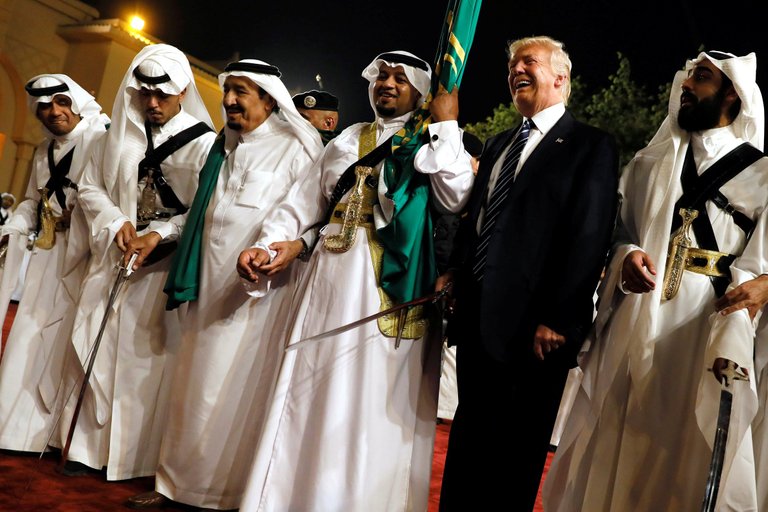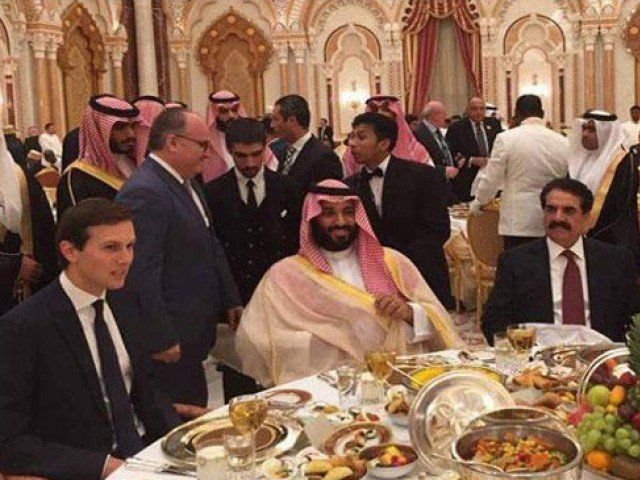
The current campaign on Qatar is one of the manifestations of the Arab / Israeli rapprochement, and one of the first goals of what would be called the "Arab NATO" preached by the administration of US President Donald Trump.
For several years now, Israel has accused Qatar of funding and supporting "terrorism." On July 23, 2014, Time of Israel published a statement by former Israeli President Shimon Peres saying that Qatar had become one of the world's largest financiers of terrorism, because of its financial support to Hamas in Gaza.
Despite its efforts, Israel has failed to create an international and regional consensus against Qatar in order to pressure it to change its foreign policy. The administration of former US President Barack Obama has been keen to form an international coalition against the Islamic State, such escalation against Qatar might lead to the failure of this coalition, in which the Arab presence is key.
This is in addition to the state of psychological disillusionment that characterized the personal relationship between Obama and Israeli Prime Minister Benjamin Netanyahu, making the former unenthusiastic to respond to Israeli attitudes toward this particular issue.
Israel found an outlet for it in the Arab world through the hostility that surfaced from Arab countries against Qatar. Saudi Arabia, the UAE, Bahrain and Egypt withdrew in March 2014 ambassadors to Doha on the pretext of supporting the political Islam stream, which is largely represented by the Muslim Brotherhood.
This came amidst a state of tension that characterized the relationship between Doha, Riyadh and Abu Dhabi. For example, Foreign Affairs reported in March 2014 that both Riyadh and Abu Dhabi sought to publicly condemn Qatar during a summit of The Gulf Cooperation Council (GCC), which was held in Kuwait in December 2013, but they retreated at the last minute to avoid embarrassment to the Kuwaiti hosts.
However, several developments on the regional scene pulled the rug from under the Israelis. The most prominent of these was the arrival of these countries to an understanding whereby their ambassadors returned to Qatar, and the fundamental changes that took place in the Saudi leadership following the death of King Abdullah and the arrival of King Salman and the shift of priorities to contain the Iranian threat. This is in addition to the desire of the US administration to keep the GCC united in its campaign to organize the state.
With the rise of Trump to power it was clear that the US policy towards the Middle East will see a new approach other than that of his predecessor, Obama. In general, the new approach is creating an alliance between Israel and its Arab neighbors to address the threat of "terrorism" and most importantly the “Iranian influence".

This approach became clear with Trump's visit to the region and his famous speech in Riyadh when he redefined the war on terror to include a wider circle. It was no longer confined to fighting "terrorist groups" but rather to fighting "radical Islam", or as Trump said it: "The Crisis of Islamic Extremism".
The declared American approach paved the way for Israel to enter the Arab world from its widest range under the pretext of a common threat. Both Iranian influence in the region and "terrorist groups" were the common ground that formed the start of what could be an "Arab NATO" with Israeli participation.
In this new approach, Qatar was one of the expected targets: in the eyes of Israel, Doha was a terrorist state in support of Hamas, a terrorist state in Egypt's due to the support for the Muslim Brotherhood, while in the Gulf (UAE, Saudi Arabia and Bahrain) Doha was a major inconvenience to support Arab Spring currents, or simply anti-dictatorship.
The three major countries involved in the escalation against Qatar - Israel, the United Arab Emirates and Saudi Arabia - have taken advantage of the current situation in Washington and the chaos of the Trump administration to gain the support of the US administration, or at least its blessing, of any escalation towards Doha.
These countries have tried to influence Trump's behavior through two paths: first, the rapprochement with close figures of President Trump, led by his son-in-law and adviser Jared Kushner, who has a strong personal relationship with Crown Prince Mohammed bin Salman.
Salman al-Ansari, the founder and chairman of the US-Saudi Arabia Public Relations Committee, describes Kushner as "secretary of everything", according to Foreign Policy magazine (May 2017). "As long as we have our secretary for everything, I think the relationship works well," Ansari said.
He describes the relationship between the two men (Kushner and Bin Salman) as strong. The men, he said, "have a common vision and a reformist mentality." Kushner is a conservative Zionist figure, and his family has very strong and intimate ties with the family of Israeli Prime Minister Benjamin Netanyahu.

In the same context, the leaked messages of the UAE ambassador in Washington, Yusuf Al Otaiba, revealed the relationship between the UAE and a pro-Israel, pro-neoconservative center, which was established after the events of September 11, 2001 and is known as the Foundation for the Defense of Democracies. This center served as a platform for influencing the US decision maker to demonize Qatar and accusing Aljazeera of destabilizing the region.
This is not limited to Kushner alone. US Defense Secretary James Mattis and CIA director Mike Pompeo carry the same ideas that Riyadh and Abu Dhabi both have for Iran and the Muslim Brotherhood, according to The Washington Post (June 1, 2017). This explains to a large extent how decision makers in Saudi Arabia and the UAE have been able to influence policymakers in Washington on the shape and nature of US policy toward the Middle East.
The second track adopted by the three countries (Israel, Saudi Arabia and the United Arab Emirates) to influence Trump's administration was the exploitation of the vacuum of the diplomatic machine in the new US administration. The number of vacancies in the Ministry of Foreign Affairs is about 2,000, which undermines its active role in international affairs as it was before.
As previously known, US diplomacy has played an important role in tackling Gulf-Gulf differences, but the career gap at the State Department and the inexperience of some of its senior officials, headed by Secretary of State Tillerson himself, have been an incentive for countries to step up against Qatar.
For example, the Washington Post reported on June 1, 2017 that Stewart Jones, assistant secretary of state for Near Eastern affairs, had resigned nearly a month ago and had not been named by the White House until that date.
Regardless of the real motives behind the recent attack on Qatar, it represents a dangerous escalation, and indicates - without a doubt - the state of great confusion sweeping the Arab world, and the absence of a strategic view of decision makers in it.
If there really is a serious intention to contain the Iranian influence in the region and fight ISIS, it is necessary to involve Qatar and take advantage of its great potential, rather than demonize it and wage war or isolate it.
The chaos in the Arab world requires dialogue, the search for commonalities, the resolution of differences by mutual understanding and compromise, not the severing of relations and the tightening of the blockade by land, sea and air. This will increase the instability in the region and authorize more wars to erupt.
Thanks!